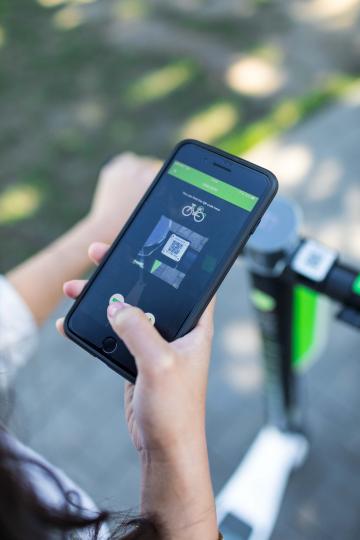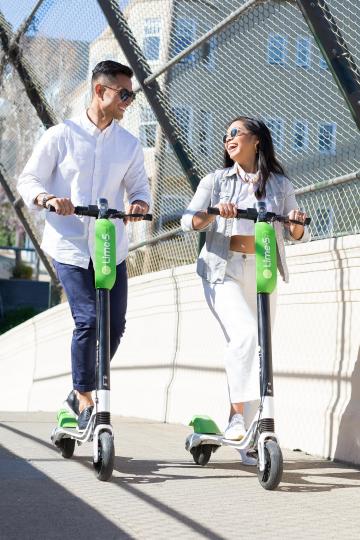News
Small Electric scooters gaining popularity in the USA
Electric scooters are taking major US cities by storm, boosted by a huge rise in demand and additional funding.
These scooters first came into California and were deployed in the cities of San Francisco, Los Angeles and San Diego. The companies responsible for this are three start-ups - Bird, Spin and LimeBike. The idea behind it was to provide last mile connectivity to commuters. Users can download the respective apps and rent these electric scooters to take them home. The app would direct them to the assigned scooter and unlock the vehicle remotely. After the ride, the users can simply leave them at the destination and forget about it.
The scooters are available on rent at a price of $1 along with an additional charge of 10 to 15 cents per minute to run them. This makes them significantly cheaper to use when compared to taxis and other ride-sharing services. At night, the companies employ people to find these scooters and charge them. They get paid between $5 to $20 per scooter, allowing some people to earn additional money over their regular jobs.
However, there are a few issues as well. The cities have now been found to be littered with electric scooters. Users leave them on sidewalks, in front of driveways and in front of access ramps for the disabled. This is hampering walking on the streets and restricting access for the disabled. The electric scooters, which can travel at around 24 km/h, are often found to be zooming on the sidewalks putting pedestrians at risk.
The start-ups are using the same strategy that Uber and Airbnb used. They came into the market when there were no specific rules and established themselves. With increasing popularity amongst the masses, they forced the local authorities to come up with regulations that allowed them to ply in the cities. City councils having been taken aback and are now trying to restrict the running of these scooters after receiving many complaints from residents. The city of Santa Monica, where Bird is based, filed a criminal complaint against the company and its founder, Mr. Travis VanderZanden, for running without a proper license and not complying with citations. Bird ended up paying a settlement. Mr. VanderZanden earlier worked for Uber and Lyft.
Meanwhile, the start-ups are also claiming to do their bit to reduce the menace. They have asked riders to park the scooters at designated places and be considerate to others around them. Bird is proposing asking the customers to send a picture of the parked vehicle after they finish using it. They are also providing customers with helmets, while at the same time, pushing for a removal of the helmet rule for electric scooters.
Even with the backlash against these companies, they are continuing to become more and more popular. They are expanding to other cities like Austin and Washington D.C. The problems with the city councils are also emerging in these cities.
However, investors see a successful business model in these companies after witnessing the success of Uber and Lyft. Bird has now raised $300 million in new funding, bringing the value of the company to $2 billion. Some of the major investors are Sequoia Capital and Accel Partners.
























